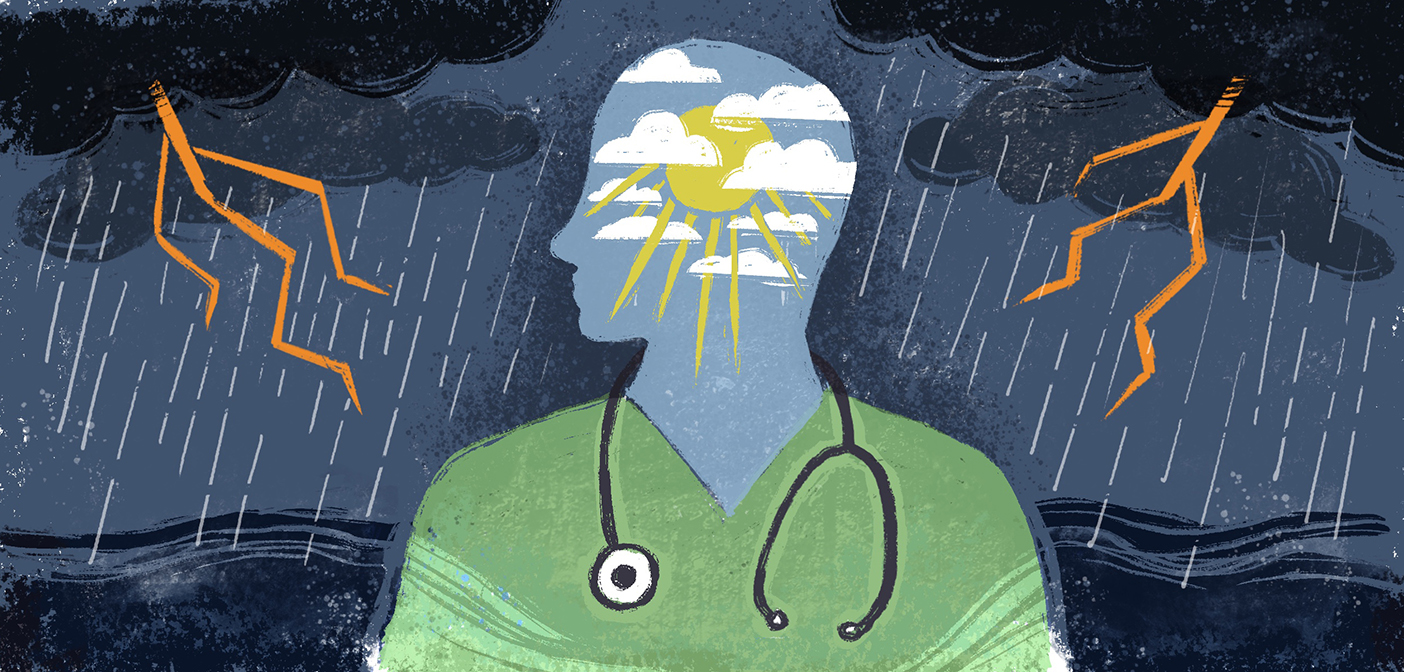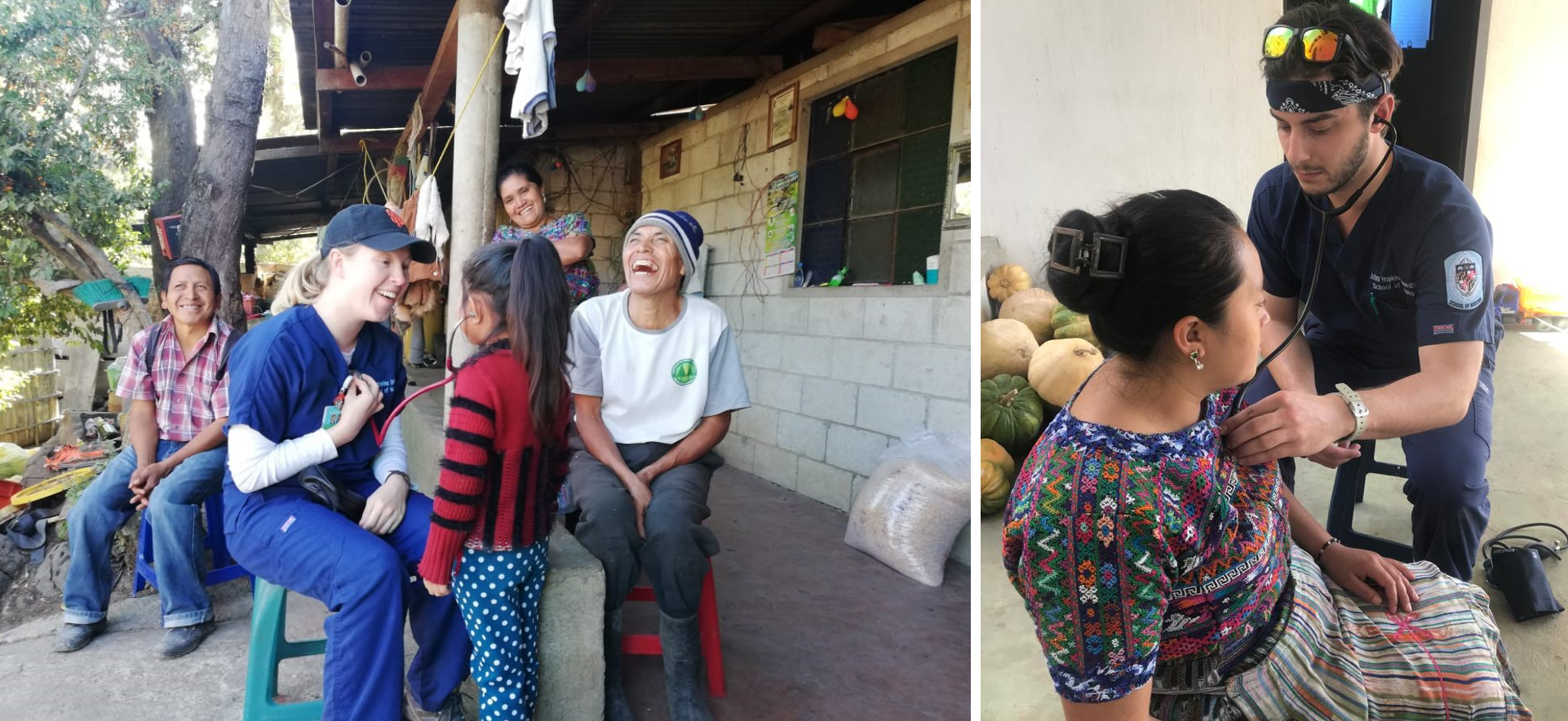ILLUSTRATIONS BY ANDY SNAIR
Each day, health professionals (nurses, physicians, social workers, chaplains, and others) experience complex ethical challenges that can lead to burnout, staff turnover, and moral distress. These issues have only intensified during the COVID-19 pandemic, and the result can be less safe and effective care of patients, and—with burned-out caregivers abandoning jobs—even more dire shortages on health teams. But all is not lost.
“Moral resilience, the capacity to preserve or restore integrity in response to moral adversity, includes factors that may be modifiable and therefore present an opportunity for intervention to foster empowerment and growth during morally distressing situations at the bedside,” report DNP-PhD student Inga Antonsdottir, Professor Cynda Rushton, PhD student Katie Nelson, and faculty and research colleagues Katherine Heinze, Sandra Swoboda, and Ginger Hanson in “Burnout and Moral Resilience in Interdisciplinary Healthcare Professionals” (Journal of Clinical Nursing).
Indeed, new measurement tools such as the Rushton Moral Resilience Scale, developed by Professor Rushton, can offer insights intro breaking that cycle of suffering and turnover.
“Moral distress, a contributor to burnout especially in critical care settings, arises when a clinician’s integrity is threatened as a result of conflicting or unmet fundamental professional values that create dissonance between what an individual believes one ought to do and what one is actually doing. Witnessing, participating in or falling short of moral obligations under conditions of constraint or duress can lead to moral distress,” the authors report.
“Understanding the everyday, pre-pandemic correlations of moral resilience and burnout among interdisciplinary clinicians allows us to see changes that may exist. Measuring and understanding moral resilience … is vital for creating ways to build healthier, more sustainable clinical work environments and enhanced patient care delivery.”

 Birth Companions Talk Doulas and Maternal Health with Mayor Brandon Scott
Birth Companions Talk Doulas and Maternal Health with Mayor Brandon Scott Forging Policy: How Can Doulas Improve Black Maternal Health?
Forging Policy: How Can Doulas Improve Black Maternal Health? Global Service Learning: Guatemala
Global Service Learning: Guatemala Q & A With Forensic Nurse, Michelle Patch
Q & A With Forensic Nurse, Michelle Patch Guatemala Re-visited: Rainwater Project Shows Value of Service-learning Trips
Guatemala Re-visited: Rainwater Project Shows Value of Service-learning Trips





